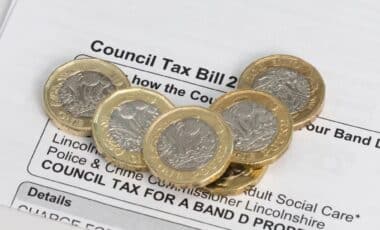HM Revenue and Customs (HMRC) has launched a new digital service targeting the 35 million Britons using the Pay As You Earn (PAYE) system, in what officials describe as a major transformation of the UK’s tax administration.
The changes are part of a broader roadmap, including over 50 reforms, intended to streamline operations, reduce postal communication, and shift the majority of taxpayer interactions online by 2030. The initiative aligns with the government’s aim to modernise the tax system and improve efficiency through automation and digital self-service.
HMRC Rolls Out New Digital PAYE Features
According to HMRC, the updated service enables employees under the PAYE system to manage key aspects of their tax affairs entirely online. Accessible through personal tax accounts or the HMRC app, the platform allows users to amend their income, allowances, reliefs, and expenses without requiring postal forms or contact with support staff.
The department expects the overhaul to deliver £50 million in cost savings annually, largely by cutting back on physical correspondence and moving taxpayer notifications online. Among the new tools is a Digital Disclosure Service, which enables users to voluntarily correct tax errors through a simplified digital channel.
Another update scheduled for later this year includes changes to behavioural penalties, aimed at distinguishing between compliant and non-compliant taxpayers. HMRC said this will create a fairer system, reducing the likelihood of penalising users who follow the rules while improving compliance oversight.
The transformation is part of a broader strategy to position HMRC as a “digital first organisation”, with a strong emphasis on automation, self-service, and user accessibility. These changes are designed not only to enhance taxpayer experience but also to ensure greater accuracy and speed in tax administration.
AI Integration and Incentive Reforms Form Part of Long-Term Vision
A central component of HMRC’s roadmap is the introduction of artificial intelligence into various stages of customer service and compliance. According to the authority, AI will support customers in navigating services more effectively and ensure that tax guidance remains up to date.
It will also be deployed in fraud detection, particularly in reviewing documentation during compliance checks.
In parallel, HMRC is developing a reward scheme to incentivise the reporting of serious tax non-compliance. Informants could receive payments based on a proportion of tax recovered, with the scheme targeting high-value cases involving large companies, offshore activities, and aggressive tax avoidance strategies.
James Murray MP, Exchequer Secretary to the Treasury, stated that by 2030, HMRC will deliver “a simpler and easier system for all PAYE workers”, featuring “cutting-edge AI” and a focus on ensuring all taxpayers “pay their fair share”.
JP Marks, HMRC’s Chief Executive, described the plan as a move towards “a first-class experience” for UK citizens, underpinned by automation and digital efficiency.









